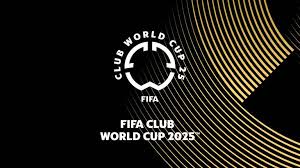April 11 – FIFA will distribute $1 million to each of the 11 host cities for the 2025 FIFA Club World Cup, with the money targeted at supporting local community projects and creating a legacy that outlives the tournament.
The funds will be used to build small community-focused pitches and support social initiatives in each city. The legacy programme is part of a broader push by FIFA to highlight the impact of the first edition of its expanded 32-team Club World Cup, which will take place in the United States for the first time next summer.
The announcement comes as FIFA ramps up promotion of the tournament. A recent socioeconomic study commissioned by the organisation claimed the Club World Cup could generate up to $21.1 billion in global GDP, including $9.6 billion in the U.S., while supporting over 100,000 jobs. That figure includes $3.36 billion in estimated social benefits.
Legacy funding has become a staple of major tournament planning, though critics have at times questioned how effectively such initiatives are implemented on the ground. With more than $10 million set aside for this particular programme, scrutiny will likely follow as cities roll out specific projects.
FIFA also confirmed that it will distribute up to 30,000 tickets to first responders in Pasadena and surrounding areas affected by wildfires earlier this year, specifically for matches played at the Rose Bowl.
The Club World Cup is one of two major events FIFA will stage in the US over the next two years, alongside the expanded 2026 Men’s World Cup. As with that tournament, FIFA is keen to position the Club World Cup not just as a commercial venture, but one with long-term benefits for host communities.
“We care about our social role, which is why we are in the process of establishing the FIFA Foundation USA. Also, for the legacy of the FIFA Club World Cup in the United States, we will contribute $1 million to each of the 11 cities that will host matches to support local social projects,” FIFA President Gianni Infantino said.
“This means ideally installing mini pitches and organising soccer activities with children on these pitches in areas where they are most needed in each city, something that will ensure that the impact of this groundbreaking global tournament will be felt for years to come.”
The FIFA president, who is currently touring several of the tournament’s host cities, meeting with local stakeholders from all areas of the soccer community, added: “This is a symbol and a sign that we want to do something for the community because one of the things that strikes me here in North America, and this has to change, is that there are not enough facilities to play soccer in the right environment.
“So, to give something, to contribute in building something in the areas of the cities – Atlanta, Charlotte, Cincinnati, Los Angeles, Miami, Nashville, New York New Jersey, Orlando, Philadelphia, Seattle and Washington, DC – that is most needed is something that we have to do. It is our responsibility and I hope that many will follow us in this.”
Contact the writer of this story, Harry Ewing, at moc.l1744482371labto1744482371ofdlr1744482371owedi1744482371sni@g1744482371niwe.1744482371yrrah1744482371

